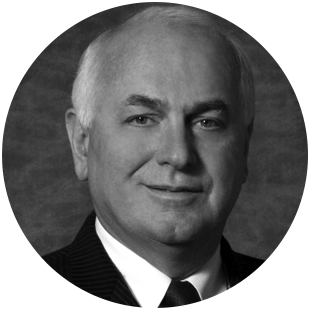GLOBAL REPORT—Hoteliers and industry analysts say there could be pros and cons coming out of recent elections in the United States and Canada for both regions, and believe there are better days ahead for hotels in oil markets.
Here’s what sources had to say about currency, election impacts and oil markets going into the new year.
|

Paul Cahill,
|
|

Carter Wilson,
|
||||
|

Glenn Squires,
|
|

Lyle Hall,
|

Paul Cahill, area VP Canada, global brand leader, Delta Hotels and Resorts: “When it comes to Canadian tourism, Americans are both Canada’s most significant source market as well as a market with tremendous growth potential. The United States produces 60 million outbound visits a year from less than 40% of the population, from which Canada gets about 19%. The low Canadian dollar has worked favorably for American tourists, and we’ve seen an increase in American guests at our Canadian hotel properties across the country as their dollars are going much further than when the currencies were at par. The increase in American visitors could be due in part to the current currency exchange rate, but also to the robust and extensive cross-border marketing campaigns recently initiated by Destination Canada. Many U.S. tourists also see Canada as one of the safest and most welcoming international destinations in the world.”
Carter Wilson, VP of consulting and analytics, STR: “Certainly, the decline of the pound after Brexit has limited travel opportunities for many travelers from the U.K., which is a huge source market for the U.S., Canada and the Caribbean. But overall, the impact from currency exchange isn’t as pronounced as what most had expected when the dollar first started to strengthen. Many expected to see a lessening in demand in major U.S. gateway cities, but so far, this hasn’t been borne out in any meaningful way. I do think exchange rates can influence pricing confidence, and if U.S. hotels begin to see lowered amounts of inbound tourism, there might be a reflexive temptation to lower rates, rather than feel confident about the untapped chunk of unaccommodated demand to pull from.”
Glenn Squires, CEO, Pacrim Hospitality: “The lower Canadian dollar has had a very positive impact on domestic tourism. Canadians are staying at home, and international travelers are increasing because of their buying power. The combination of the two has created very strong growth across the country, which should continue in to 2017. This has probably had a negative effect on Canadian leisure travel to U.S. sun destinations.”

Wilson: “Currently, there aren’t any real changes because we are still waiting to see what policies take effect (or are removed). Historically, an election in and of itself in the U.S. doesn’t move the needle in any meaningful way on hotel demand, though subsequent policy changes may have a substantive influence. Generally speaking, the hotel economy is tethered to the broader economy, and if the overall economy continues to grow—even weakly—we shouldn’t expect any jarring changes in the hotel economy.”
Squires: “The Canadian election has produced a government where a significant number of elected members have a background in tourism. The government recognizes the importance of tourism to the economy and the overall positive impact tourism has across society from a cultural, development and celebration of heritage perspective. 2017 is our 150th birthday with lots of events planned, so with other dynamics, (this) should be a very strong year. The Bank of Canada now monitors tourism and its impact on the economy. Overall, very positive for our sector. The U.S. election’s major concern is around increased border security and ease of movement between Canada and the U.S. Additionally, any modification to NAFTA (the North American Free Trade Agreement) could harm Canadian manufacturing, impact employment and hurt domestic tourism. On a positive side, the President-elect is involved in various tourism and hospitality businesses and should well understand the positive impact of the Industry.”
Lyle Hall, managing director, HLT Advisory*: “In Canada, the most significant change since the election in 2015 has been the increased funding of Destination Canada (the industry’s national marketing entity) and a clear focus back on Canada’s primary inbound market: The United States. This had been started under the previous administration, but the liberal government has made a long-term, formal commitment. The visibility of the new prime minister on the international stage has also been helpful from an awareness perspective, particularly with a millennial audience. The 150th anniversary of Canada’s confederation in 2017, and the myriad of events and marketing efforts, will see some short-term benefits. The U.S. perspective of travel and tourism post-U.S. election is a different story. The G8 or G20 has probably never had a leader with as deep an ownership/operational role in hospitality/tourism as Donald Trump. On the surface, that should be a positive. However, there are four things to watch over the initial year of the presidency that will quickly signal any potential impact on tourism: 1) the continuity of funding for Brand USA in light of a stated reticence for public support of such vehicles; 2) visa and immigration policies tied to security; 3) regulatory changes on everything from deductibility of business/convention travel expenses to permitting access by foreign airlines to U.S. landing slots; and 4) The Wall. It would be easy to develop scenarios where Canada is harmed by the new administration, such as reduced travel to North America as a whole (some 40% of overseas visitors to Canada enter through the United States) or where Canada might benefit from favorable travel policies.”

Cahill: “Canada remains among the top 20 most visited countries globally, but Alberta has been struggling for the last two years. The good news is the Conference Board of Canada recently issued a research report indicating that tourism is expected to increase in 2017. Calgary has also introduced two impressive new attractions: The National Music Centre … and the $28-million Calgary Film Centre. … We also recently opened a beautiful new Marriott in the new Calgary airport terminal, and we have plans to open a gorgeous new JW Marriott in Edmonton in the very near future. We have confidence in the mid- to long-term outlook for Alberta.”
Wilson: “Hotels in oil markets have a deep hole to climb out of, but the good news is 2016 may represent the bottom of that hole. Oil prices are on the rise after OPEC cut a deal on November 30 to slash production. Higher prices allow U.S. energy companies to restart some of the shuttered operations, and the employment rise resulting from that should help hotels in those regions. But that’s all we know, as of this moment. Things can change very quickly in the global oil economy, and even if the hotels in these areas start rebounding from increased local energy employment, they will still be facing the general headwinds of a slowing overall hotel economy in 2017.”
Squires: “We are beginning to see signs of increasing oil and gas prices, which is beginning to have initial positive impact on oil-and-gas-producing provinces. Improvement is anticipated in 2017. The President-elect’s position on pipelines should encourage further confidence in the sector. This will be positive for oil/gas-producing provinces, but will likely spur an increase in value in the Canadian dollar. An increase in the dollar would see more Canadians travel outside Canada and likely have a negative impact on domestic tourism, but a positive impact on U.S. sun destinations.”
Hall: “While I expect we will see a gradual increases in WTI (West Texas Intermediate) this year and next, the days of $100 (plus per barrel) of oil are over, in my opinion. Alternate sources of energy (and a groundswell of consumer support for these sources) and a legislative move to reduce carbon-based fuel usage coupled with the incoming U.S. Administration’s interest in further exploration (i.e., increased supply) does not bode well of the oil patch.”
*Correction, 3 January 2017: A previous version of this article gave the incorrect company name.
